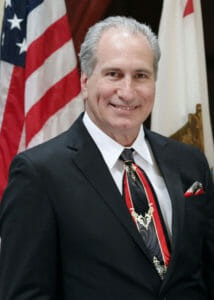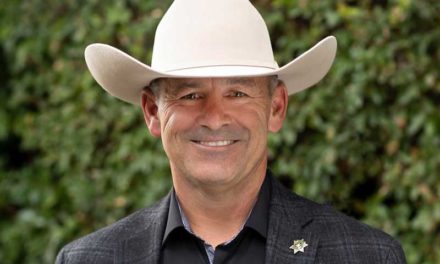More than a decade after the Great Recession pummeled funding for California’s developmental disabilities system, the cumulative budget cuts and inflationary impact to service providers who deliver programs to Californians with developmental disabilities has created a net shortfall of nearly $1.1 billion, according to Change.Org.
Change.org has started a petition drive asking Gov. Gavin Newsom to support an 8% systemwide rate increase to the Developmental Disabilities system in the 2019-20 state budget.

Sen. Jeff Stone
The issue has also captured the attention of Sen. Jeff Stone, R-Riverside. The Senate Committee on Health Services unanimously passed Stone’s Senate Bill 412 to restore funding for developmental disability services that was cut during the Great Recession.
While California’s economy has rebounded, many of these cuts remain in place, according to Stone.
Year after year, despite public outcry, the state has failed to address the desperately needed funding necessary to stabilize the neglected system of care for California’s most vulnerable citizens, petitioners argue.
The 8% increase amounts to about $290 million of the $24.1 billion state budget surplus and would begin to stabilize California’s crumbling developmental disabilities system, according to the petition. As of April 28, 335 people have signed it.
California is home to an estimated 350,000 children, youth, and adults with special needs and developmental disabilities.
“The chronic lack of funding has created a major social justice issue,” according to the petition. “The woefully inadequate funding severely impacts the quality of life of California’s most vulnerable citizens and those who care for them.”
As a result of the significant underfunding, the San Francisco-based nonprofit organization claims:
• An estimated 28,000 programs have closed across the state, causing significant waitlists for services.
• Adults with developmental disabilities living in state-funded group homes are being displaced without their consent, and being forced to move from their communities, their families and friends.
• The funding shortage means service providers are unable to recruit and retain dedicated and skilled direct care professionals to adequately staff the system.
• Nearly 35% of direct care professionals are on Medi-Cal, receiving public food assistance, or working second jobs to earn enough money to provide for themselves and their families.
Because of the funding cuts of years ago, families now pay fees to make up the difference in the cost of those necessary services.
“These fees should really be called disability taxes,” Sen. Stone told the committee. “They are a barrier between children and the services they need. By repealing these fees we can remove these barriers to service for children with developmental disabilities and their families.”
Senate Bill 412 now advances to the Senate Appropriations Committee.
Stone represents California’s 28th Senate District. The district, which is entirely in Riverside County, stretches from the vineyards of the Temecula Valley to the Colorado River and includes the cities of Blythe, Canyon Lake, Cathedral City, Coachella, Desert Hot Springs, Indian Wells, Indio, Lake Elsinore, La Quinta, Murrieta, Temecula, Palm Desert, Palm Springs, Rancho Mirage and Wildomar.
Image Sources
- Head-photo-of-senator-stone-e1509503081535: Sen. Jeff Stone
- Developmental Disability: Shutterstock







